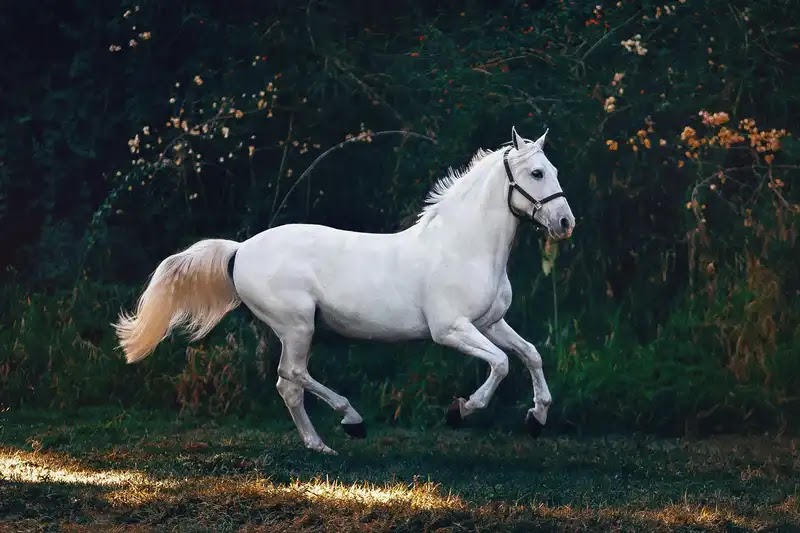The Timeless Charm of Horses as Pets: A Bond Beyond Words
In the vast tapestry of human-animal relationships, few bonds evoke the same sense of awe and admiration as that between a person and a horse. For centuries, horses have captivated the human imagination with their grace, strength, and innate beauty. Beyond their roles in agriculture, transportation, and sport, horses have found a place in our hearts as beloved companions, offering a unique and profound connection that transcends words.
A Noble Heritage:
The history of horses and humans intertwines across millennia, dating back to ancient civilizations where these magnificent creatures played pivotal roles in warfare, agriculture, and exploration. From the chariot races of ancient Rome to the warhorses of medieval knights, horses have been indispensable allies, shaping the course of human history and culture.
The Evolution of the Bond:
As humanity evolved, so too did our relationship with horses. What began as a pragmatic alliance for survival evolved into a deep and multifaceted bond characterized by trust, companionship, and mutual respect. Unlike traditional household pets, horses command a certain level of reverence and admiration, their towering presence and gentle demeanor inspiring feelings of awe and humility in their human counterparts.
Building a connection with a horse is a journey of patience, empathy, and understanding. It requires a keen awareness of equine behavior, coupled with a willingness to communicate nonverbally through body language and subtle cues. Through consistent interaction, positive reinforcement, and gentle guidance, a profound bond emerges, rooted in mutual trust and companionship.
Physical and Mental Well-being:
The benefits of owning a horse extend far beyond mere companionship. Engaging in activities such as grooming, riding, or simply spending time in their presence offers numerous physical and mental health benefits for both horse and owner.
Riding provides a form of exercise that is not only physically invigorating but also mentally stimulating. The rhythmic motion of riding promotes balance, coordination, and core strength, while also fostering a deep sense of connection with the horse. Moreover, the serene beauty of nature and the tranquility of the open trail offer a welcome respite from the stresses of modern life, promoting a sense of inner peace and well-being.
Responsibility and Commitment:
Owning a horse is a significant responsibility that demands careful consideration and commitment. From providing proper nutrition and veterinary care to maintaining a safe and stimulating environment, horse ownership requires dedication, resources, and a willingness to prioritize the well-being of the animal above all else.
However, for those willing to invest the time and effort, the rewards of horse ownership are immeasurable. The bond forged between horse and owner is a testament to the power of connection and the enduring magic of animal companionship. It is a relationship built on trust, mutual respect, and unwavering loyalty, transcending the boundaries of language and culture.
The Journey of Discovery:
The journey of horse ownership is one filled with endless discovery and growth. Whether embarking on leisurely trail rides, competing in equestrian events, or simply enjoying quiet moments in the pasture, each day brings new opportunities for connection and enrichment.
Moreover, the bond between horse and owner only deepens with time, evolving into a partnership that transcends words. Through the highs and lows, the triumphs and challenges, the bond between human and horse remains steadfast, a testament to the timeless charm and enduring appeal of these magnificent creatures as pets.
Safety Tips:
Certainly! Here are some safety tips for those considering or already owning horses as pets:
Education and Training: Before acquiring a horse, it's essential to educate yourself about their care, behavior, and handling. Consider taking horsemanship classes or seeking guidance from experienced horse owners to learn basic horse care and safety practices.
Appropriate Equipment and Facilities: Ensure that you have the necessary equipment and facilities to safely handle and care for a horse. This includes suitable fencing to contain the horse, proper stabling or shelter, and essential horse care items such as grooming tools, tack, and first aid supplies.
Regular Veterinary Care: Schedule regular veterinary check-ups and vaccinations to keep your horse healthy and prevent illnesses or injuries. Establish a relationship with a qualified equine veterinarian who can provide routine care as well as emergency assistance when needed.
Safe Handling and Interaction: When handling or interacting with your horse, always prioritize safety for both yourself and the animal. Approach the horse calmly and confidently, avoiding sudden movements or loud noises that may startle them. Use proper handling techniques and be mindful of the horse's body language to avoid accidents or injuries.
Proper Nutrition and Hydration: Provide your horse with a balanced diet tailored to their age, breed, and activity level. Ensure access to clean, fresh water at all times and monitor their weight and condition regularly to prevent nutritional deficiencies or obesity-related health issues.
Regular Exercise and Mental Stimulation: Horses are naturally active animals that require regular exercise and mental stimulation to stay healthy and happy. Provide opportunities for daily turnout in a safe pasture or paddock, as well as regular riding or training sessions to keep them physically and mentally engaged.
Safe Riding Practices: If you plan to ride your horse, always wear appropriate safety gear, including a well-fitted helmet, sturdy boots with heels, and protective riding attire. Start with basic riding skills and gradually progress to more advanced maneuvers, always prioritizing safety and communication with your horse.
Emergency Preparedness: Have a plan in place for handling emergencies such as injuries, illnesses, or natural disasters. Keep essential supplies on hand, including a first aid kit, emergency contact information for your veterinarian, and a contingency plan for evacuating or sheltering your horse in case of emergencies.
Socialization and Companionship: Horses are social animals that thrive on companionship and interaction with other horses or animals. Whenever possible, provide opportunities for socialization with compatible herd mates or companions to prevent loneliness and boredom.
Continuous Learning and Improvement: Horse ownership is a journey of continuous learning and improvement. Stay informed about the latest developments in equine care and welfare, seek guidance from experienced professionals, and never hesitate to ask questions or seek help when needed.
By following these safety tips and prioritizing the well-being of your horse, you can enjoy a rewarding and fulfilling relationship with your equine companion while minimizing the risks of accidents or injuries.
Conclusion:
In a world filled with noise and distraction, horses offer a timeless reminder of the beauty and tranquility found in nature. As pets, they bring a sense of wonder and joy into our lives, enriching each moment with their presence. Beyond the practicalities of care and responsibility, the bond between horse and owner is a testament to the power of connection and the enduring magic of animal companionship.
So, whether trotting through open fields or simply basking in their company, the journey of horse ownership is a privilege and a delight, offering a bond that truly stands the test of time. It is a journey of discovery, growth, and mutual understanding, guided by the timeless charm and unwavering loyalty of these magnificent creatures.















0 Comments